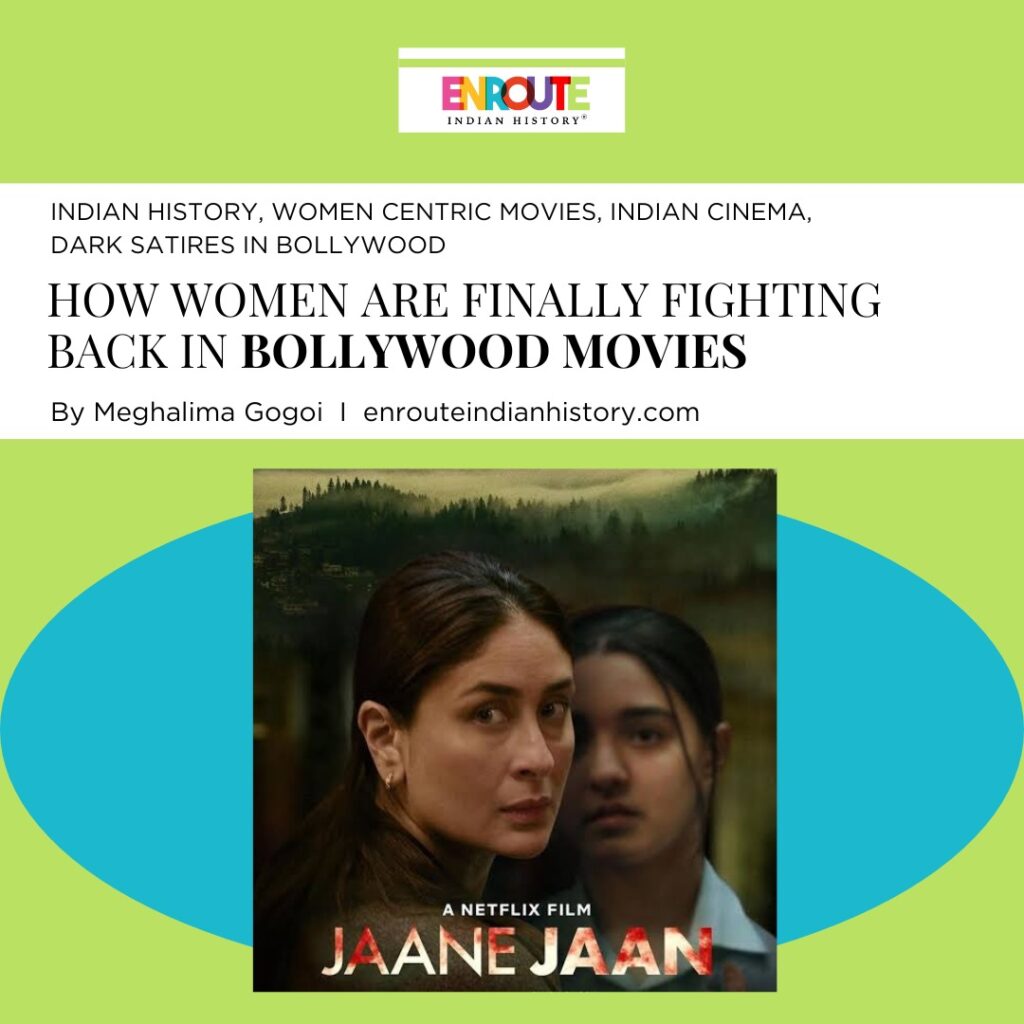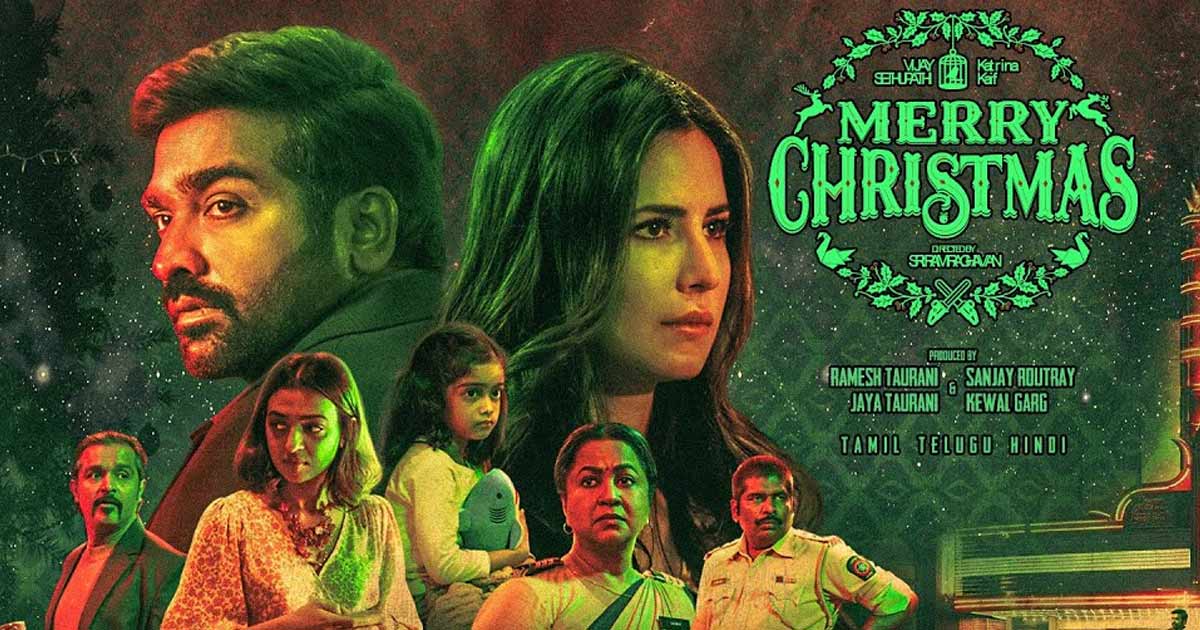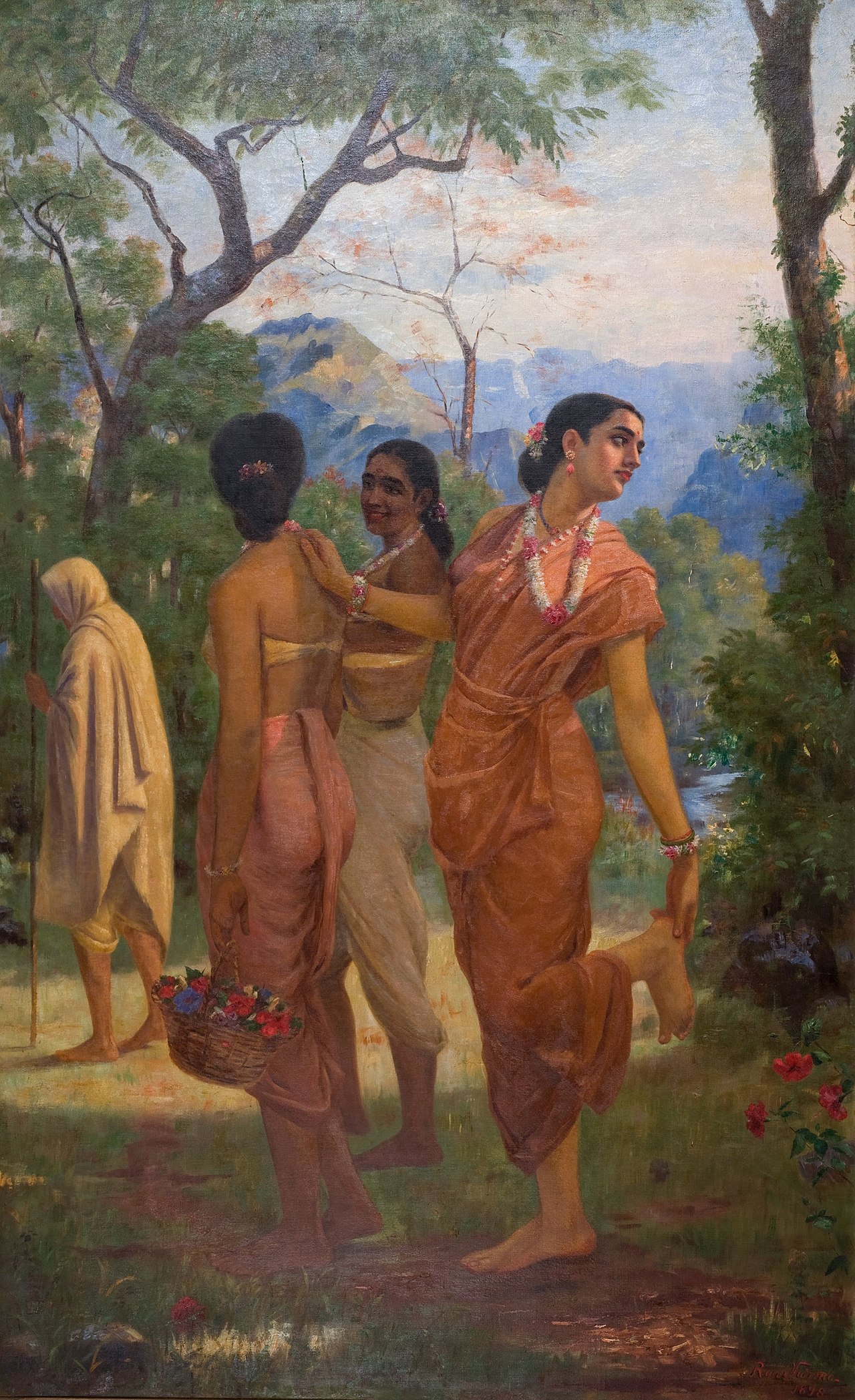How women are finally fighting back in Bollywood movies?
- enrouteI
- February 7, 2024

Cinema and society have been so intricately linked in modern Indian history, that it is difficult to tell whether movies reflect society or society imitiates movies. It is indeed a two-way process. The last one or two decades have witnessed a Gender Revolution in Bollywood with the proliferation of women-centric movies that have contributed in big and small ways to challenge the inherent patriarchal bias in Indian cinema that has long viewed women through the male gaze. Movies like Queen, No One Killed Jessica, Gangubai Kahtiawadi, Raazi, Neerja, etc. highlight women’s empowerment. In contrast to the meek, sacrificing, and homely women of yesteryears, these ‘new women’ are independent, strong-willed, and fierce, creating their own space and identity within and outside the domestic sphere. A second category of women-centric movies has highlighted the subtle and overt forms of oppression, violence, and misogyny that constitute the social reality of most Indian women. This includes Thappad, NH10, Pagglait, Pink, Chhapak, Article 15, etc. to name a few. Films like Lipstick Under My Burkha, The Dirty Picture, Parched, etc. portray women who actively indulge and explore their sexuality, pushing the boundaries of Patriarchy that have often equated female sexuality with loose morals. Most movies weave together a combination of these themes into their narratives to bring out the differences and similarities in the lives of Indian women belonging to different social backgrounds.
Thrillers and Dark Satires
This article explores the genre of women-centric thrillers and dark satires in Bollywood through four recent movies – Darlings (2022), Jaane Jaan (2023), Merry Christmas (2024), and Mom (2017). These movies explore the complexities of female characters in suspenseful and satirical contexts. The women in these movies avenge themselves and their loved ones by going to the length of committing murder which gives a whole new meaning to the ‘immense sacrificial love’ of Indian women. These women choose to take matters into their own hands rather than suffer through violence and injustice. While Maria (Katrina Kaif) in Merry Christmas and Devki (Sridevi) in Mom commit skillfully planned murders, Maya (Kareena) in Jaane Jaan acts in self-defense. Badru (Alia Bhatt) in Darlings decides at the last moment to set her abusive husband free. But fate intervenes, as he collides with a train.

Source: Gadgets 360
Dark Satires: Darlings and Merry Christmas
Darlings by debutante director Jasmeet K Reen, featuring phenomenal leads Alia Bhatt, Shefali Shah, and Vijay Varma takes a dark-humourous take on the cycle of domestic abuse in an urban lower middle class milieu. Hamza (Vijay) who married Badru (Alia) out of love, is an office-going man by day and a habitual drinker who beats his wife by night. Despite the encouragement from her mother Shamshu (Shefali Shah) to give up on Hamza, Badru displays a battered wife syndrome who continues to irrationally hope for a change of heart. The climax depicts the audacity of Hamza to threaten Badru soon after she releases him from the railway track where she had left him to die. It proves Badru’s earlier sentiment about him reflected in the line ‘Main Bicchu hu, kaatna meri fitrat hai.’ It highlights the bitter reality that abusers rarely change or rectify themselves. The artistic brilliance of Alia Bhatt shines through in her ability to reflect Badru’s pain and rage behind her calm facade and humorous dialogues. The complex character of Hamza shows how patriarchy and its social constructs victimize both men and women, although it is no excuse for resorting to violence. The witty soundtrack of the film equates Badru to a ‘jailbird.’

Source: Koimoi
Merry Christmas directed by Sriram Raghavan, starring Katrina Kaif (Maria) and Vijay Sethupathi (Albert) fools you into expecting a fun-light festive watch with its title. In some ways, it is. Unlike Darlings, which has a serious undertone throughout, Merry Christmas maintains a light-heartedness for the entire stretch, despite grave issues like domestic violence and sexual assault being at its core. The story revolves around Maria who craftily murders her husband Jerome, for abusing her and their daughter Annie. The slow-burn film keeps the audience engaged and guessing throughout. Albert who had just returned from jail for killing his partner in a fit of one-time rage meets Maria on the same Christmas evening that she kills Jerome. Albert helps cover Maria’s tracks and in the end, takes the blame upon himself as he proposes to Maria. In some ways, he views it as repentance for killing his girlfriend Rose. Albert in contrast to Hamza, regrets his actions and is willing to change for the better.
Both these film tackles dark subject matter – domestic violence and rape by infusing elements of humor. Humour if not employed correctly can often end up trivialising a serious issue. But these movies have been successful in engaging the audience while raising powerful questions about agency, morality, love, law and order, etc. without imposing any verdict upon the audience. Dark humor, especially in Darlings makes the characters more real, layered, and complex who continue to go about their daily lives despite their crumbling inner world. The humor-infused scenes succeed in portraying the complexity of abuse in intimate relationships where violence, relentless hope, reconciliation, assurances, societal expectations, and gaslighting trap the woman in a vicious cycle.
Thrillers: Jaane Jaan and Mom
Mom, starring Sridevi (Devki) is an intense thriller that deals with the quest of a mother to avenge the violation of her teenage daughter by four men in a gangrape. Her quest starts after the police closes the case and acquits the rapists due to a lack of evidence. It shows how the justice system often lets the victim down. Directed by Sujoy Ghosh and set in the hill town of Kalimpong, Jaane Jaan skilfully uses its landscape to create an aura of mystery. Maya and her daughter kill her estranged abusive husband who had found them after 14 years in hiding in a scruffle. The spotlight of the movie then shifts to Naren (Jaideep Ahlawat) who is on a mission to help Maya in covering her tracks using his brilliant mathematical brain. The climax is rather patchy and questionable and leaves many loose ends. But the issue that this movie brings to light is the closure of options for a woman caught in an abusive relationship. Stigma and blackmail often prevent women from approaching the law. In this case, the abuser himself is a policeman and the imbalance of power naturally tilts in his favor.

Source:IMDB
Both these movies speak volumes about the failure of the state machinery and judiciary. One is left wondering why these women found taking matters into their own hands a better way of achieving justice rather than approaching state authorities. A rising number of cases where perpetrators of violence run free on bail causing further harm, and the nexus between police, lawyers, and criminals has eroded public faith in the state machinery. The system has failed so many women that many fear approaching the police, which has a proven track record of victim blaming. For women who get caught in the cycle of abuse, there seems to be no ‘correct’ or ‘easy’ way out.
The presence of male accomplices is a common characteristic in all these movies. Characters like Zulfi and the butcher in Darlings, epitomize healthy masculinity. Where as, in Jaane Jaan and Merry Christmas, the male accomplices go to the extent of taking the blame upon themselves as an act of love, transforming into ‘male liberators.’ Bollywood, after all, finds it difficult to do without a love angle. But in real life, actions, even acts of self-defense are answerable to the law. Frequent employment of the trope of a ‘male liberator’ can end up taking the agency away from the women.
 Source: Justdial
Source: Justdial
Streaming Platforms and Women-Centric Movies
The influx of streaming platforms has seen a parallel rise in women-centric movies. Streaming platforms like Netflix, Amazon Prine, Disney Plus etc. along with multiplexes have allowed filmmakers the liberty to make diverse films targetting different audiences instead of making one movie that appeals to all. This shows that women-centric movies also have a targeted audience and therefore their impact on society is limited. Thrillers and dark satires with their subtle delivery of social commentary have the potential to reach a wider and more diverse audience as suspense and humor often make for great entertainment, which the vast majority of movie-goers still seek in their movie. Filmmakers no longer spoon-feed the audience. They leave open-ended questions provoking the audience to arrive at their conclusions and notions of right or wrong. However, given their moral ambivalence, the positive acceptance of such movies depends upon the maturity of the audience as well.
All four movies discussed here are characterized by a moral ambiguity that leaves the viewer conflicted. The act of murder itself is condemnable. Taking the law into one’s own hands should not be condoned for it sets a dangerous precedent in society. Having said that, one can’t help but sympathize and share the rage and desperation of Badru, Devki, Maya, and Maria that drives them to such desperate actions. Violence begets violence, but does it set anyone free?
REFERENCES:
Yadav, S. and Jha, S., 2023. Bollywood as a Site of Resistance: Women and Agency in Indian Popular Culture. Journal of International Women’s Studies, 25(3)
Chakravorty, Jui. et al. 2023. Bollywood’s Gender Revolution: Women are Rewriting the Rules. NIKKEI Asia.
- May 15, 2024
- 6 Min Read


























